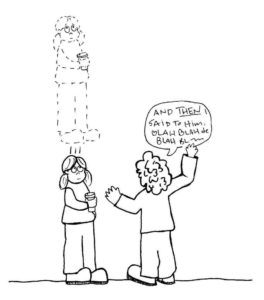Discover Your Character Structures
Take the Character Structure Quiz to discover your character structure/s.
What are the 5 patterns called character structures?
These five patterns most often developed in childhood as a way to protect yourself from negative experiences. You may have been insufficiently nurtured, unwanted, overly controlled, betrayed, or squashed. Everyone experiences these early wounds to some extent. No parenting or childhood environment is perfect. Yet, certain environments may have been more threatening, prolonged, or intense than others, thus creating one or more character structures that dominate your life.
Your individual temperament and subsequent life experiences may also influence the severity of each pattern. The behaviors stemming from the character structures cycle through—and negatively affect and control—your adult life. Most of them are annoying to others. Even though they enabled you to develop certain gifts, they play a major role in preventing you from reaching your true self.
The character structures were developed by Alexander Lowen, John Pierrakos, and others and based on the early work of Wilheim Reich, a colleague and disciple of Freud. Many of my students found that learning about and seeing the motivations behind these five character structures greatly changed their lives for the better. Relationships—whether with a demanding boss or intimate partner—improved. Many became more compassion because they realized a person’s annoying or upsetting behaviors were the result of certain childhood wounds. Becoming aware of these character structures helps you realize who you are not. This sends you on a journey to discover who we really are.
See if you recognize yourself in the quotes below. Click the images to see them at full size.
“I feel like an outsider. It’s hard to find my place in the world. I find social interactions daunting, preferring to be at home reading, meditating, watching DVDs, or playing games on my computer.”
“When I do go to a party, I sit near the door, ready to split if things get too intense. I tend to space out when bored or threatened. Succeeding in a career is not a top priority for me.”
“I’m overwhelmed! I never seem to have enough energy, time, or money to do what I need to do. Why do I have to do so much work? Someone should be taking care of me.”
“People don’t appreciate all I do. I worry that my partner and friends will leave me–if they haven’t already done so. I find myself always giving and not receiving, and often feel empty inside.”
“I feel stuck. It’s not my fault I can’t move forward. There’s always someone or something blocking my way. I’m anxious and no one’s able help me. No wonder I often complain about my job, boss, and relationships. It’s hard for me to be disciplined about things like diet, exercise, or cleaning my house. At times I feel hopeless, believing my life will never improve.”
“When anyone criticizes, questions or challenges me, I get my back up, ready for a fight. Can’t they see my point of view is the right one? It’s hard for me to trust that things will be okay, so I take control.”
“I need to impress others—telling exciting stories or being the best in some endeavor—so I can win their love and acceptance. Yet, people often betray or disappoint me.”
“I’ve a driving need to succeed in all areas of my life. I want to look good, have a model family, and be successful in my career. It’s hard for me to relax and have fun because there’s so much I need to do. I don’t easily express my feelings, and sometimes I can’t even identify what they are. It’s difficult for me to let go and be silly. I often feel like I’m on autopilot, just going through the motions, making sure everything on my to-do list gets checked.”

